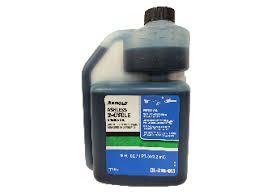Ashless Additives: An Essential Component in Modern Industries

In several fields, especially in lubrication and engine performance, Ashless additives are becoming increasingly important. Free of metallic components that leave residue or "ash" after combustion, these additives provide a range of advantages that increase mechanical system and product lifetime, efficiency, and environmental footprint. Knowing the special qualities and purposes of ashless additives helps us to value their importance in several fields, including manufacturing, automotive, industrial, and aviation.
What Are Ashless Additives?
In lubricant and fuel additives, the phrase "ashless" describes compounds that, under high heat or combustion, do not generate any metallic residue once applied to a fluid. Traditional additives, on the other hand, can include metallic elements like barium, calcium, or zinc that leave an "ash" after burning. When this residue builds up in engine parts, it leads to fouling, decreased efficiency, and more frequent maintenance.
As their name implies, ashless additives do not produce such residues. Usually consisting of organic compounds, including ester derivatives or other non-metallic chemicals, these additives are meant to provide certain advantages to a lubricant, gasoline, or oil. Ashless additives are increasingly chosen in sectors concentrated on sustainability and lowering environmental effects since they do not contribute to toxic residues.
Types of Ashless Additives
Several types of ashless additives are used across different sectors, including:
Ashless Dispersants
These additives stop sludge and deposit development, therefore preserving cleanliness in mechanical systems and engines. They distribute soot, particles, and other pollutants, therefore preventing their agglomeration and engine fouling generation. In diesel and high-performance engines, ashless dispersants are especially important.
Ashless Detergents
By preventing the accumulation of carbon and other wastes in combustion chambers, these additives help engines run cleanly and effectively. They guarantee seamless engine performance and shortened maintenance intervals by helping to eliminate existing deposits and stop their buildup.
Ashless Antioxidants
These compounds protect lubricants and oils against oxidation, therefore preventing the breakdown of oil and the synthesis of dangerous acids. Sludge creation resulting from oxidation can also impact engine performance. Particularly in high-temperature environments, ashless antioxidants are vital for enhancing the performance and durability of oils.
Ashless Anti-Wear Additives
These additives create protective layers on metal surfaces, therefore lowering friction and wear in high-stress surroundings. Reducing the wear on engine components helps machinery last longer, and less frequent component replacement is required.
Ashless Friction Modifiers
These enable machines and vehicles to run with less energy usage by reducing friction between moving components, therefore improving fuel economy. Ashless friction modifiers help to improve performance and reduce emissions by increasing the lubricating qualities of oils.
Ashless Corrosion Inhibitors
These additives protect metal surfaces from corrosion brought on by other aggressive agents, acids, or moisture. Ashless corrosion inhibitors are essential in preserving the longevity of machinery in sectors where it is subjected to harsh environmental conditions.
Uses of Ashless Additives in Various Industries
Here are some of the uses of ashless additives in various industries:
Automotive Industry
Among the main sectors that are gaining from ashless additives is the automotive sector. Engine oils, transmission fluids, and fuel additives are often formulated with these additives to improve performance and lower wear. For the automotive industry, some of their primary benefits consist of:
Improved Fuel Efficiency
Ashless friction modifiers help to minimize the friction between moving engine components, leading to improved fuel combustion and fuel economy.
Lower Emissions
As environmental rules get tougher, manufacturers are more and more concerned about lowering emissions. Ashless additives limit the production of soot and carbon deposits, therefore reducing particle emissions.
Extended Engine Life
To avoid the collection of damaging deposits, ashless dispersants and detergents keep engines cleaner. Longer intervals between oil changes help preserve engine performance over time.
Aviation Industry
In aviation, the efficiency and safety of aircraft engines depend critically on lubricant and oil performance. Ashless additives are necessary in aviation oil formulations by:
Enhancing High-Temperature Stability
Aircraft engines generally run under high-temperature conditions, and ashless antioxidants offer improved protection against oil oxidation, hence increasing the service life of the lubricant.
Reducing Deposits
Ashless detergents and dispersants help to avoid the accumulation of carbon deposits and other pollutants that can compromise engine performance, therefore enabling more reliable operation of aviation engines.
Minimizing Wear and Tear
Ashless anti-wear additives guarantee that moving components inside the engine feel less friction, therefore lowering mechanical wear and tear imp, improving engine longevity, and lowering maintenance expenses.
Industrial Applications
In many different industrial uses, particularly where machinery runs under great loads or high temperatures, ashless additives are vital. These applications include:
Heavy Machinery
Additives lower friction and improve the lubrication of moving parts, therefore helping to reduce wear and tear in high-load machinery such as compressors, hydraulic systems, and gearboxes.
Industrial Lubricants
Ashless additives guarantee that lubricants operate best at high temperatures and pressures. Mostly in industrial operations, it prevents oxidation, lowers friction, and increases the life of machinery.
Turbine Oils
By minimizing the development of hazardous deposits and lowering corrosion, which so increases the efficiency and dependability of turbines, ashless additives assist in improving the performance of turbine oils used in power plants.
Marine Industry
Like aircraft, the marine sector works with big, high-performance engines that depend on consistent lubrication for seamless running. Ashless additives are used in marine diesel engines, where they:
Enhance Fuel Efficiency
Ashless friction modifiers lower the energy wasted on friction, therefore improving engine efficiency and fuel economy.
Prevent Corrosion
In marine environments where salted seawater can accelerate the deterioration of metal components, ashless corrosion inhibitors are particularly vital. These chemicals guarantee the longevity of engines and other equipment exposed to harsh sea conditions.
Keep Engines Clean
Ashless dispersants and detergents assist marine engines in remaining free from carbon and sludge accumulation, therefore enhancing performance and reducing the demand for maintenance.
Renewable Energy
The renewable energy industry, including solar and wind power, also benefits from the use of ashless additives. For instance, the ashless additives in wind and turbine gear oils help:
Reduce Gearbox Wear
The constant operation of wind turbines places significant stress on their gearboxes. Ashless anti-wear treatments increase gear longevity and efficiency, hence lowering repair and maintenance downtime.
Enhance Oil Performance
Ashless antioxidants and dispersants enhance lubricant performance, therefore enabling longer oil change intervals and improved overall operation of renewable energy systems.
Environmental Impact of Ashless Additives
The positive environmental impact of ashless additives is one of the main reasons behind their growing use. In addition, ashless additives help to lower exhaust emissions since they do not create metallic residue or ash upon combustion. For businesses under strict environmental rules, especially in sectors like automotive and aviation, where lowering particle emissions is a top concern, this is vital.
Moreover, biodegradable and non-toxic, ashless additives help to minimize environmental damage from leaks or spills. The use of additives in fuel systems and lubricants fits the global push toward greener technologies and sustainability.
Wrapping Up
From automotive to aircraft, industrial machinery, marine, and renewable energy, Ashless additives are flexible and effective components that are vital in many different sectors. Their indispensable nature in modern lubricating and fuel formulations stems from their capacity to prevent deposits, lower friction, improve performance, and advance environmental sustainability.
Ashless additives are projected to be used more as sectors change with an eye toward efficiency, sustainability, and low environmental impact. This will stimulate more innovation and advancements in the longevity and performance of machinery and equipment.





